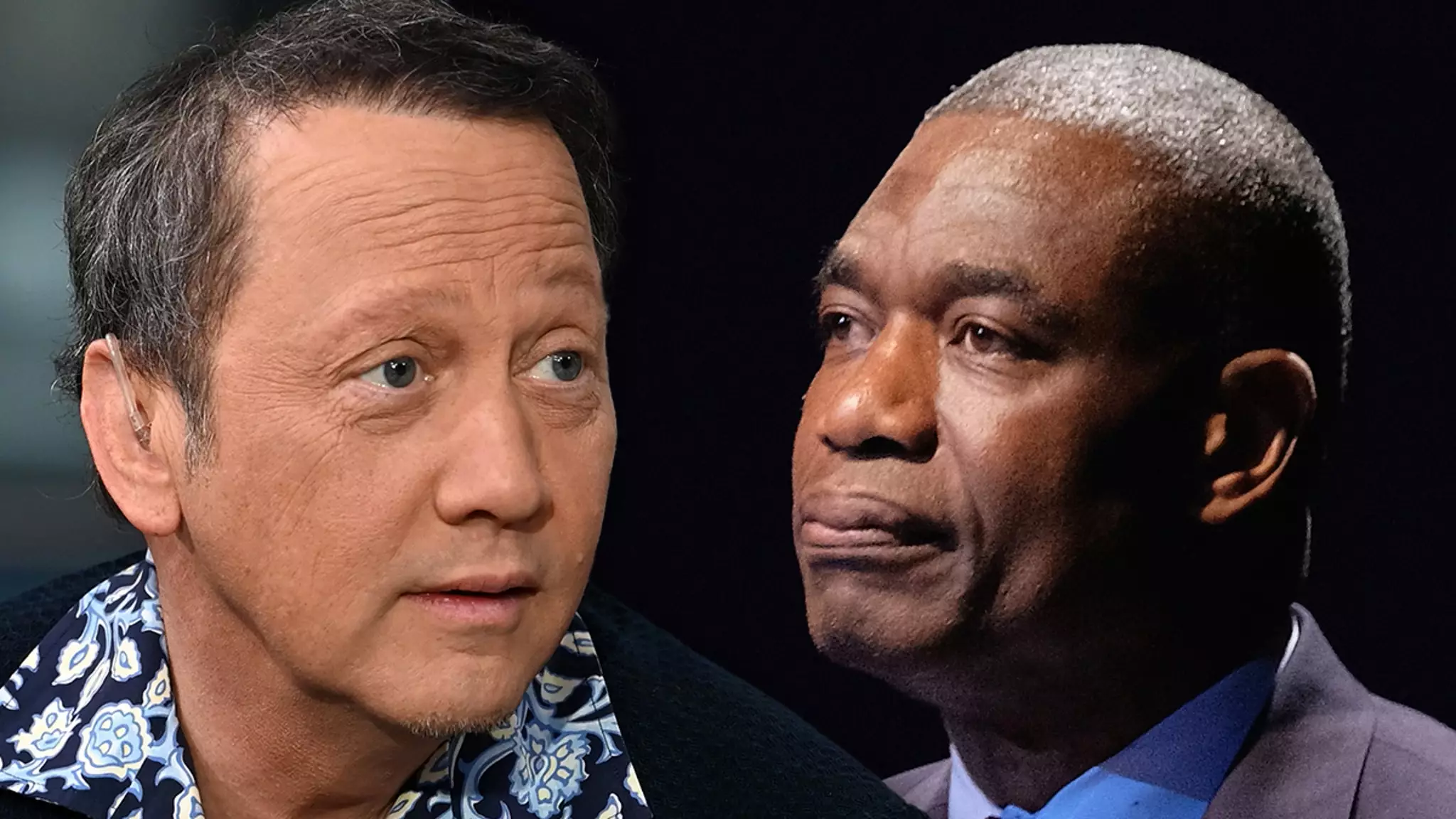In the realm of public figures, the passing of a beloved personality often brings forth a wave of condolences and collective mourning. However, in the case of comedian Rob Schneider’s tribute to NBA legend Dikembe Mutombo, the outpouring of grief quickly turned into an unwanted spectacle. Schneider’s attempt to memorialize Mutombo on social media was overshadowed by his provocative insinuations linking the former All-Star’s death to his COVID-19 vaccination. This situation highlights the delicate balance between expressing sorrow and the potential pitfalls of platforming personal beliefs in the wake of tragedy.
The post began typically enough with a respectful “Rest in Peace,” but the narrative shifted dramatically as Schneider quoted an older video where Mutombo spoke in favor of the vaccine. By framing his entire message around the vaccine’s role in Mutombo’s untimely demise, Schneider veered into controversial territory, transforming a tribute into a veiled anti-vaccine argument. This troubling turn of phrase raises ethical questions: during times of mourning, is it appropriate to engage in speculation that can hurt the grieving, all to push a personal agenda?
The backlash against Schneider was immediate and pervasive, with many users on social media condemning his comments. The general sentiment, as articulated in various responses, was a mix of anger and disbelief that a comedian would exploit a moment of loss to spread disinformation about a vaccine—a topic already rife with division. The harm of spreading such conspiratorial ideas becomes all the more evident when considering how they can influence public perceptions around vaccination, particularly in the context of a tragic illness like cancer, which Mutombo publicly battled prior to his passing.
Further complicating Schneider’s position are his personal controversies, including his strained relationship with his daughter, singer Elle King. Some responses to his post not only criticized his anti-vaccine stance but also pointed out his familial challenges, labeling him a “lowlife failure.” This reflects a broader discontent with Schneider, suggesting that his public persona has alienated certain demographics, thus diminishing the credibility of his message. It’s important for public figures to recognize the implications of their statements, particularly when those assertions are potentially damaging to their own reputations.
In the end, Schneider’s actions serve as a learning moment for both public figures and their audiences. Celebrities wield substantial influence, and their platforms can either promote understanding or perpetuate misinformation. It is essential for individuals in the public eye to be mindful of the impact their statements can have, particularly in sensitive situations. Schneider’s failure to engage with the gravity of Mutombo’s struggle not only resulted in widespread criticism but also reinforced the need for compassion, especially when talking about loss, illness, and the choices surrounding them. Remaining respectful and focused on the needs of the grieving should trump any urge to score rhetorical points or promote divisive opinions.

